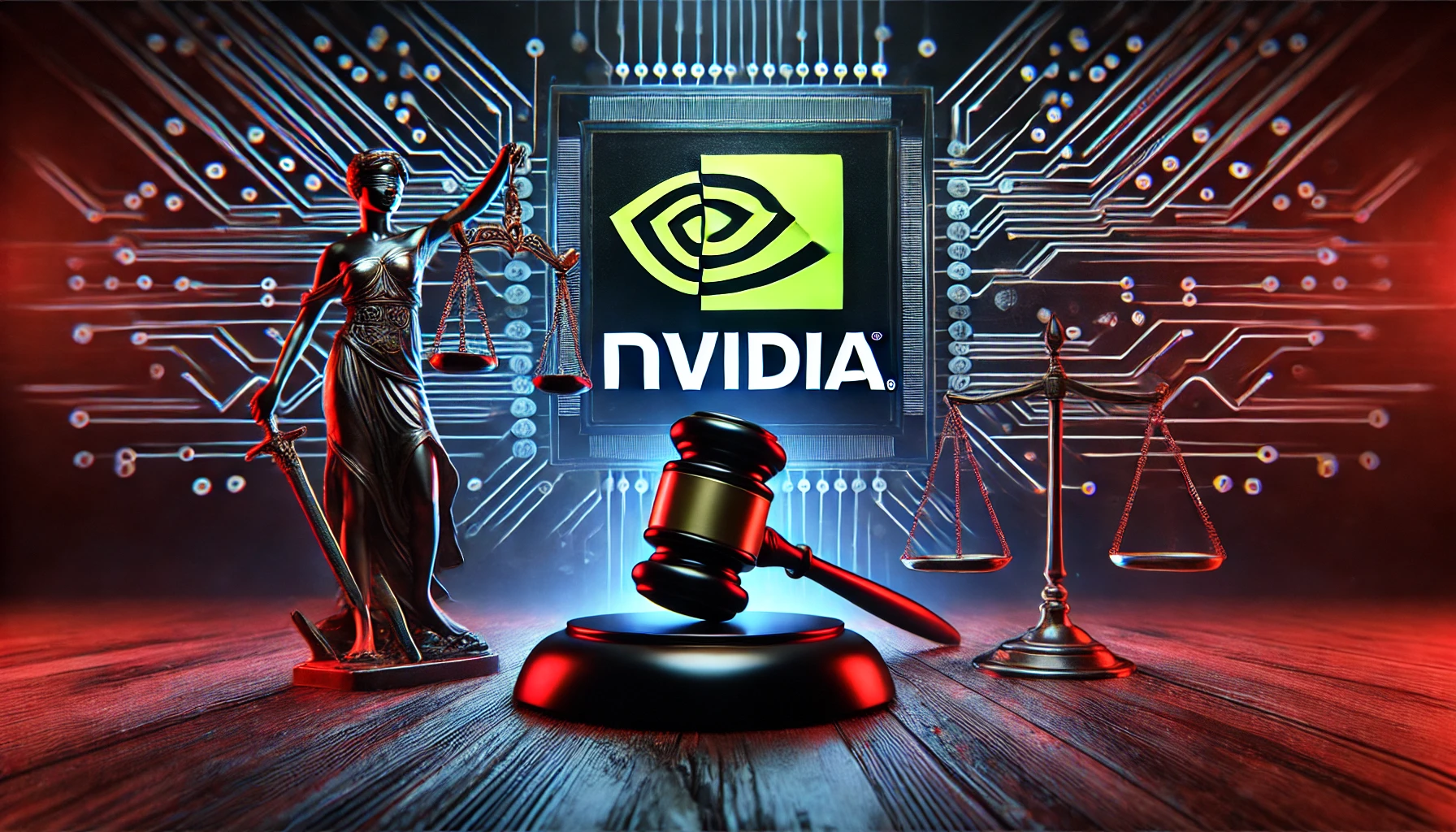NVIDIA faces dual antitrust probes from the U.S. Department of Justice (DOJ)
Generative AI’s meteoric rise has seen NVIDIA briefly surpass Microsoft as the world’s most valuable company – its value more than trebling in a year. However, as the old adage goes, heavy is the head that wears the crown. NVIDIA now finds itself facing a trifecta of challenges that could threaten to disrupt its stability at the top of the semiconductor food chain. First, we have two separate antitrust probes initiated by the U.S. Department of Justice (DOJ). The first investigation centers on NVIDIA’s $700 million acquisition of Run:ai, an Israeli startup that specializes in GPU management software. While specific The post NVIDIA faces dual antitrust probes from the U.S. Department of Justice (DOJ) appeared first on DailyAI.

Generative AI’s meteoric rise has seen NVIDIA briefly surpass Microsoft as the world’s most valuable company – its value more than trebling in a year.
However, as the old adage goes, heavy is the head that wears the crown.
NVIDIA now finds itself facing a trifecta of challenges that could threaten to disrupt its stability at the top of the semiconductor food chain.
First, we have two separate antitrust probes initiated by the U.S. Department of Justice (DOJ).
The first investigation centers on NVIDIA’s $700 million acquisition of Run:ai, an Israeli startup that specializes in GPU management software.
While specific concerns haven’t been disclosed, this probe aligns with increased regulatory pressure on big tech acquisitions, particularly in the AI sector.
The second DOJ investigation delves into allegations of NVIDIA abusing its dominant market position.
Competitors claim the company has pressured cloud providers into purchasing its products and overcharged customers for networking equipment if they opt for rival chips.
With NVIDIA controlling an estimated 70% to 95% of the AI training chip market, these practices are likely to be closely watched going forward.
A spokesperson defended the company’s practices, stating, “We compete based on decades of investment and innovation, scrupulously adhering to all laws, making NVIDIA openly available in every cloud and on-prem for every enterprise, and ensuring that customers can choose whatever solution is best for them.”
Production hurdles
Salting the wound is a reported delay in NVIDIA’s production of its next-generation “Blackwell” B200 AI chips.
Sources suggest NVIDIA has informed key customers that the chips will take at least three months longer to produce than initially planned, due to a design flaw discovered late in the production process.
CEO Jensen Huang recently expressed that he wants NVIDIA to best itself with a new flagship chip every year. This could throw a spanner in the works, at least temporarily.
As challenges mount, market observers are questioning the sustainability of NVIDIA’s sky-high valuation.
Are we witnessing the birth of a new technological era akin to the rise of personal computing or the internet?
Or is the current AI boom a case of inflated expectations likely to settle into a more measured reality?
It’s tough to say, but tech stocks are going through a rocky period. As of August 2024, NVIDIA’s market capitalization stands at $2.62 trillion, down more than 2% over the past 24 hours.
This is part of a broader tech sector slump, with nearly every technology firm in the global top 20 seeing its market capitalization shrink between July and August.
Intel, for instance, saw its stock plummet by 26% in a single day following a disappointing Q2 earnings report and the announcement of numerous layoffs – its worst day on Wall Street in 50 years.
Globally, Asian chip manufacturers like TSMC and Samsung saw their stocks fall by 4.6% and over 4%, respectively.
Despite headwinds, NVIDIA’s future still looks bright. The company has consistently demonstrated its ability to innovate and adapt to changing market conditions.
The need for powerful, efficient chips will only grow as AI continues to permeate various industries – from healthcare to finance to entertainment.
If NVIDIA’s competitors play their cards right, there will be space for them to grow, too.
Today’s challenges for NVIDIA and other big tech companies are, nevertheless, a reality check.
AI-related stocks have soared since 2022, but the market was bound to slow and become more introspective at some point.
Generative AI is a young technology. It needs to show resilience for sustained growth.
As the initial hype settles, investors and industry players alike are looking for concrete evidence of AI’s transformative potential in real-world applications.
If and when this is confirmed, there’s no telling how valuable the AI market will become.
The post NVIDIA faces dual antitrust probes from the U.S. Department of Justice (DOJ) appeared first on DailyAI.























